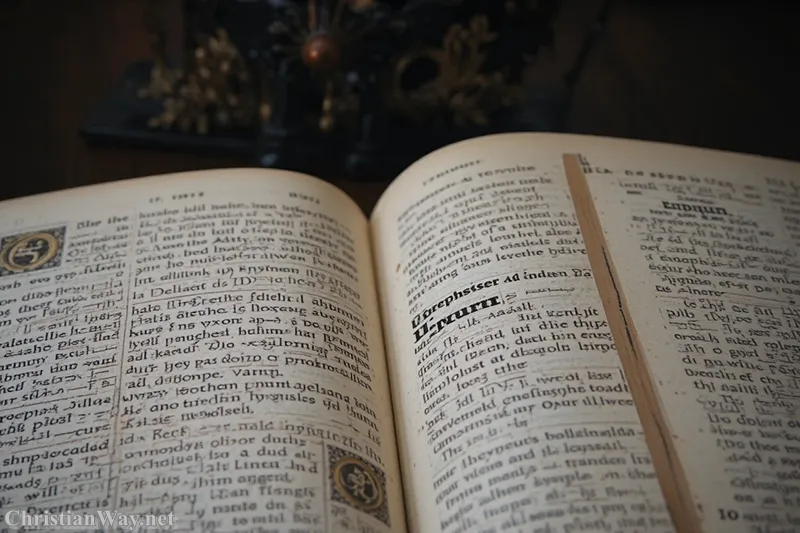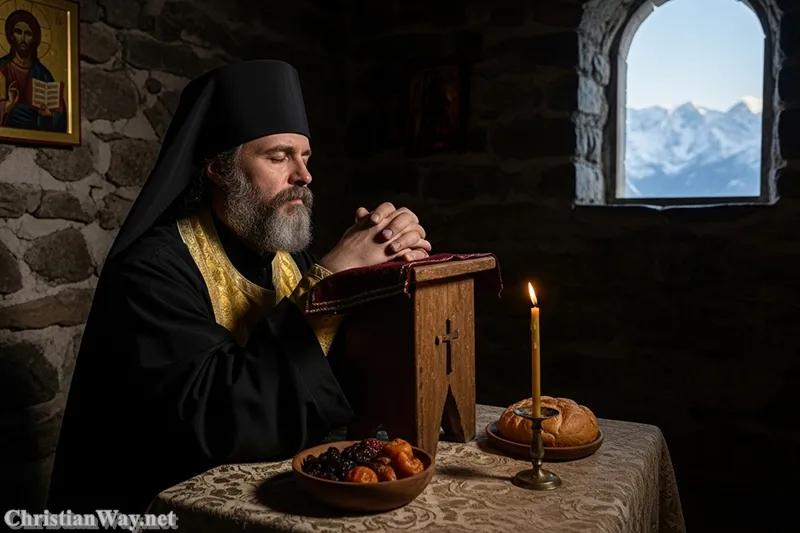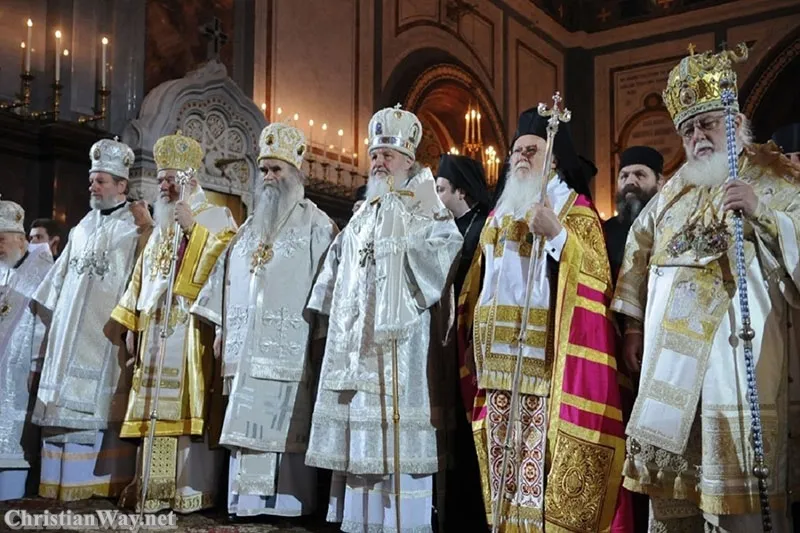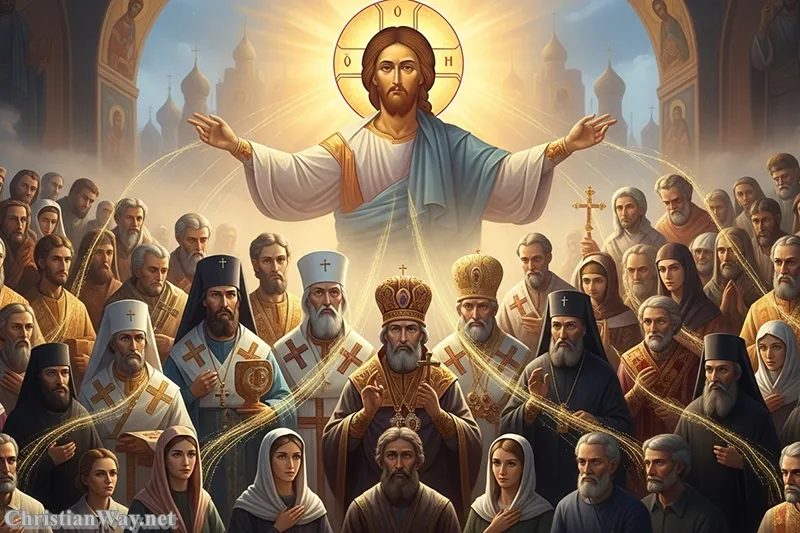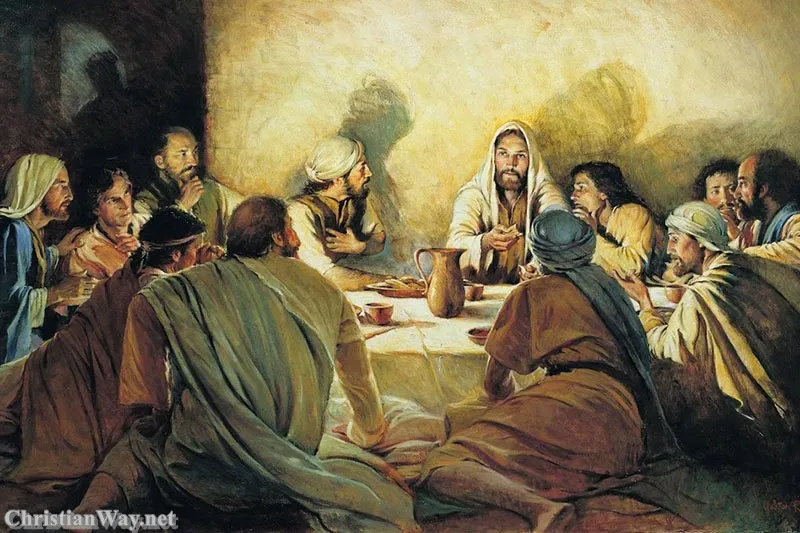Dear friends in Christ,
Every human soul carries within it a deep yearning — the longing to be seen, known, and loved. This is not a passing desire or a romantic notion; it is the echo of divine love calling us home. In the Orthodox Christian understanding, everything begins and ends in the love of God. It is this love that gives life to creation, that sustains us even in our sin, and that invites us, time and again, into repentance — not as punishment or shame, but as a return to the embrace of our Father.
Repentance (metanoia, in Greek) means far more than remorse. It is the transformation of the mind and heart, a change of direction toward divine life. Within the Orthodox tradition, repentance is not merely a moral correction, but a reorientation of the whole person toward the light of Christ. It is the continual journey from darkness to light, from self-love to self-giving love, from exile to communion.
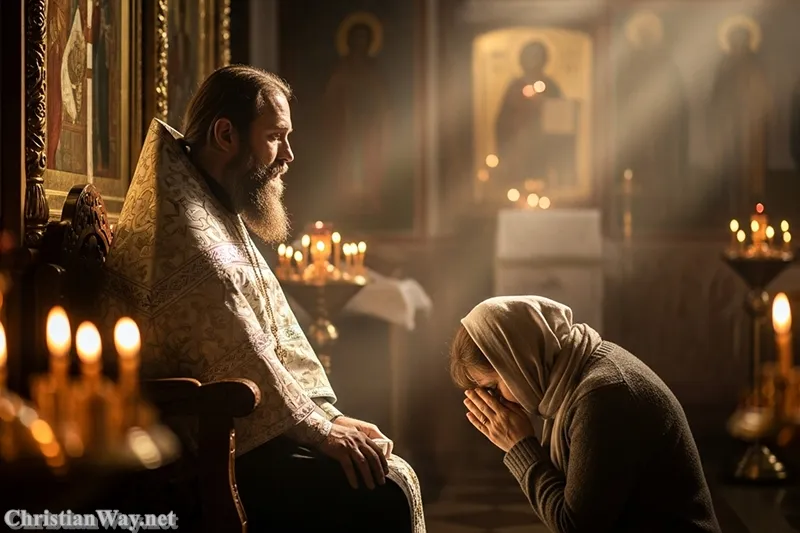
In this reflection, we will walk together through the mystery of divine love and repentance — how they intertwine as the heartbeat of Orthodox spiritual life. We will listen to Scripture, to the words of the saints, and to the gentle whisper of grace that calls us all, each day, to begin again.
The Fountain of Divine Love
In Orthodox theology, everything begins with love — not as an attribute of God, but as His very being. “God is love,” writes St. John the Theologian (1 John 4:8), and this truth radiates through every aspect of Christian life. Love is not something God does; it is who He is. The Father, the Son, and the Holy Spirit live in an eternal communion of self-giving love, a love that overflows into creation.
God’s Love as Communion
The Holy Trinity reveals that love is never solitary. The Father loves the Son, the Son loves the Father, and the Holy Spirit is the bond of that love — not in sentiment, but in living communion. In the same way, divine love seeks communion with us. Humanity was created not to serve a distant God, but to dwell in relationship with Him. As St. Irenaeus wrote, “The glory of God is man fully alive; and the life of man is the vision of God.”
When man turns away from God, he does not fall from divine wrath, but from divine love. Sin, in Orthodox thought, is not the breaking of a legal code but the breaking of communion — a turning away from the light. God does not stop loving the sinner; rather, the sinner closes his heart to that love. Yet the love of God never ceases to shine, never withdraws. It stands at the door and knocks (Revelation 3:20).
Repentance: The Doorway Back to Love
Repentance is the movement of the heart that opens that door again. It is the human response to divine initiative. God calls first; we respond. Repentance, therefore, is not self-generated guilt, but grace received.
The Cry of the Prodigal
No parable expresses this truth more beautifully than the story of the prodigal son (Luke 15:11–32). The younger son demands his inheritance, squanders it in reckless living, and finds himself in destitution. Then, the Gospel says, “he came to himself.” This is repentance — the awakening of the heart to its true home.
The father does not wait for his son to reach the door; he runs to meet him. Before the son can even finish his confession, the father embraces him, clothes him, and restores him to sonship. This is the icon of divine love and repentance: not a transaction, but a reunion. The son repents, but it is the father’s love that saves.
In Orthodox worship, this mystery is lived again and again. Every confession, every prayer of contrition, every prostration during Great Lent — all are movements of the soul returning to the arms of the Father. The tears of repentance are not bitter; they are healing waters.
The Tears That Heal
Orthodox spirituality often speaks of the “gift of tears.” To the modern mind, tears are signs of sorrow or weakness, but in the ascetic tradition, they are the fruits of love. St. Isaac the Syrian wrote, “The man who has found true repentance begins to weep for joy.”
Repentance is not despair; it is joy rediscovered. When we see ourselves truthfully — not through pride or fear, but in the light of divine mercy — our hearts are softened. Tears cleanse not only our eyes but our soul. They wash away illusions and restore the image of God within.
The Healing of the Heart
The Orthodox Fathers often described sin as a sickness of the soul. The purpose of repentance, then, is healing, not judgment. Just as a doctor does not condemn the sick but treats them, so Christ comes as the Great Physician. “Those who are well have no need of a physician, but those who are sick; I came not to call the righteous, but sinners to repentance” (Luke 5:31–32).
The mystery of confession in the Orthodox Church is not a courtroom but a hospital. The priest, as a witness of Christ’s mercy, guides the penitent through confession toward restoration. The absolution prayer often says, “May that same God forgive you through me, a sinner.” It is an act of humility and communion, a visible sign of invisible grace.
Love That Transfigures
To repent is not only to turn from sin, but to turn toward love — to be transformed by it. True repentance is not endless self-reproach but the slow transfiguration of the heart.
From Fear to Love
Many begin their spiritual life in fear — fear of punishment, fear of failure, fear of rejection. But perfect love casts out fear (1 John 4:18). In the Orthodox path, repentance gradually purifies this fear, replacing it with love. St. John Climacus described three levels of spiritual growth: the slave who obeys from fear, the hireling who obeys for reward, and the son who obeys out of love. Repentance moves us from slavery to sonship.
Through this process, repentance becomes not an event but a way of life — a constant renewal of love. The Orthodox believer does not repent once, but every day. At every Divine Liturgy, we cry, “Lord, have mercy.” These words are not despairing, but full of trust, a constant acknowledgment that we live only by mercy.
The Light of Divine Fire
Divine love is like fire — gentle yet consuming. It burns away all that is false, all that resists grace. This is not punishment but purification. St. Gregory of Nyssa compared the soul’s journey to gold being refined in fire: “The fire is not for destruction but for transformation.”
In this light, even suffering can become a place of repentance. When we suffer, our illusions fall away, and our hearts open anew to God’s mercy. The Orthodox understanding of repentance therefore includes the sanctification of suffering — not by seeking it, but by uniting it with Christ’s love.
The Eucharist: Love and Repentance Made One
At the center of Orthodox life stands the Holy Eucharist — the feast of divine love. Here, repentance reaches its fulfillment. We come before the altar not as worthy but as forgiven. The Liturgy begins with repentance and ends in communion.
Before receiving the Body and Blood of Christ, we pray: “I believe, O Lord, and I confess, that You are truly the Christ, the Son of the living God… of whom I am the first of sinners.” This is the heart of Orthodoxy — humility before the mystery of love.
In the Eucharist, divine love and human repentance meet perfectly. Christ gives Himself entirely, and we receive with contrite hearts. It is the banquet of the forgiven, the table of resurrection.
The Saints: Living Icons of Repentant Love
The saints of the Orthodox Church are not moral heroes but repentant lovers of God. St. Mary of Egypt, who lived a life of sin before her conversion, spent decades in the desert weeping before the Lord — and became radiant with divine light. St. Peter, who denied Christ, became the rock of faith. St. Paul, who persecuted the Church, became its apostle to the nations.
Their lives reveal that repentance is not about what we were, but what grace can make of us. Each saint is proof that no sin is too great, no heart too hardened, for divine love to renew.
Repentance as Participation in Christ’s Death and Resurrection
Repentance, at its deepest level, is participation in the Paschal mystery — dying with Christ to rise with Him. Baptism, in Orthodox theology, is the first and greatest repentance: immersion into death and resurrection. Every confession, every sincere “Lord, have mercy,” renews that baptismal grace.
Through this rhythm of dying and rising, the soul becomes more and more conformed to Christ, until love itself becomes its nature.
Repentance in the Rhythm of Orthodox Life
In Orthodoxy, repentance is woven into every prayer, every season, every gesture. During Great Lent, the faithful repeat the prayer of St. Ephraim the Syrian:
“O Lord and Master of my life, take from me the spirit of sloth, despair, lust of power, and idle talk. But give rather the spirit of chastity, humility, patience, and love to Thy servant. Yea, O Lord and King, grant me to see my own sins and not to judge my brother, for blessed art Thou unto ages of ages.”
This prayer summarizes the whole spiritual journey — awareness of one’s sin, the longing for purity, and love for others. It is prayed with prostrations, uniting body and soul in repentance.
Every Divine Liturgy, every Vespers, every confession echoes this same truth: divine love calls, and the human heart responds. The Orthodox life is thus a continual Pascha — a passage from death to life, from alienation to communion.
Reflect and Pray
Dear brothers and sisters, divine love and repentance are not two paths, but one. Love awakens repentance, and repentance deepens love. The more we turn toward God, the more we discover that He has already been running toward us.
Let us never think of repentance as a burden, but as the joy of returning home. Let us approach confession and prayer not with dread, but with gratitude — for the Lord of love stands before us, arms open, whispering, “Come, and be made whole.”
May we live each day in this sacred rhythm: loved by God, turning back to Him, and being transformed by His mercy. And may our repentance, like incense, rise continually before His throne.
“Create in me a clean heart, O God, and renew a right spirit within me.” — Psalm 51:10
May the peace of Christ dwell richly in your heart, and may His love guide every step you take toward Him.
— Fr. John Matthew, for Christian Way
